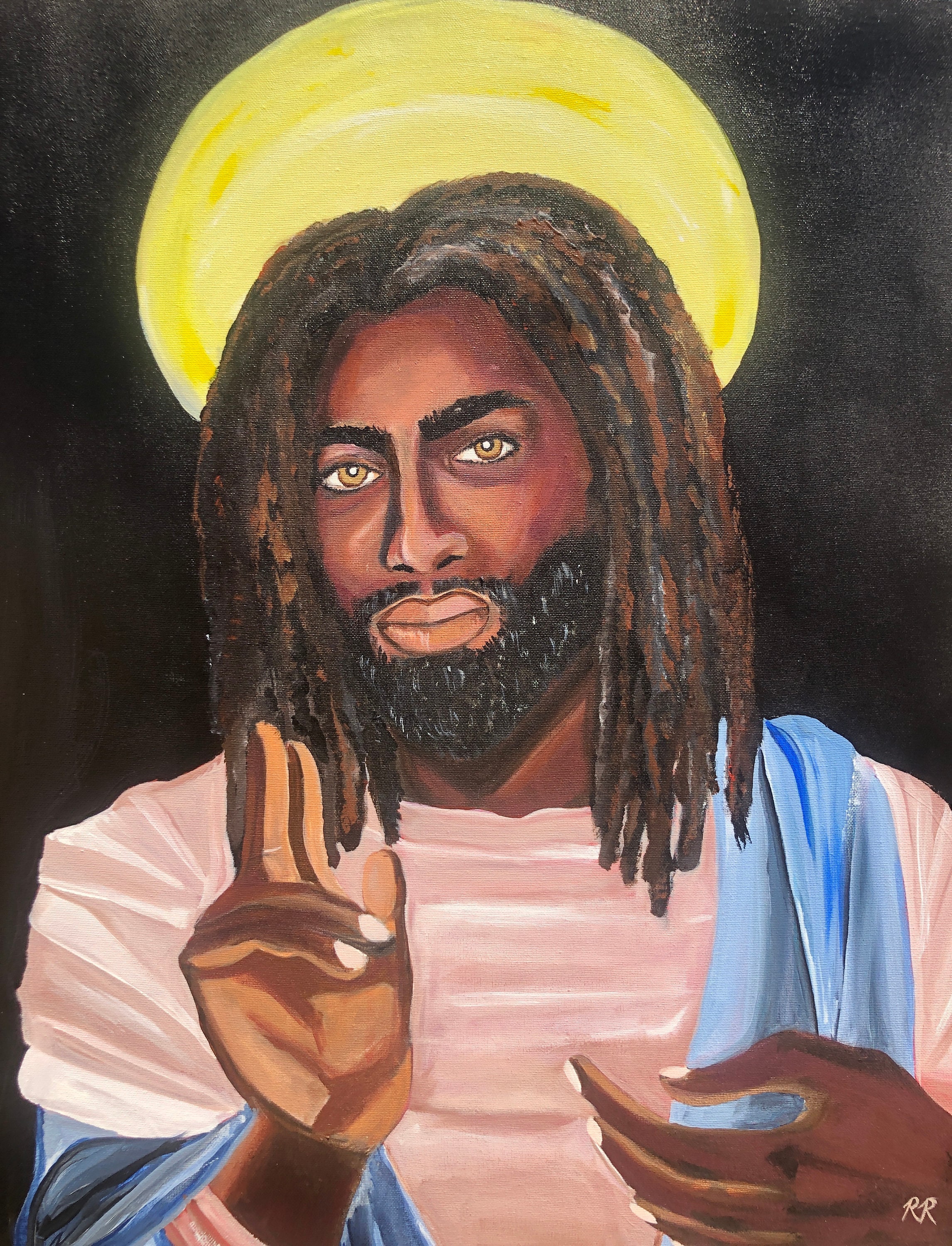Russia Jesus Black: Unveiling The Cultural And Historical Connections
Russia, Jesus, and Black history intertwine in ways that are both profound and thought-provoking, revealing layers of cultural, religious, and social significance. From the Byzantine roots of Eastern Orthodoxy to the African diaspora's influence on global Christianity, the intersection of these themes paints a vivid picture of shared human experiences. Russia, with its rich tapestry of traditions, has long been a crucible for religious devotion and cultural evolution. At the same time, the figure of Jesus Christ transcends borders, uniting diverse communities under a shared faith. Meanwhile, Black history and identity have shaped and been shaped by these narratives, creating a dynamic interplay of influence and legacy.
Exploring the connections between Russia, Jesus, and Black history is not just an academic exercise; it is a journey into understanding how faith, identity, and culture intersect in surprising and meaningful ways. For centuries, Russia's Orthodox Christian traditions have been deeply embedded in its national identity, while the African diaspora has played a pivotal role in spreading Christianity across continents. These narratives are not isolated but interconnected, reflecting the shared struggles, triumphs, and spiritual quests of humanity. By examining these themes, we gain insight into how religion and culture evolve in response to historical forces.
In today’s world, where discussions about race, religion, and identity are more relevant than ever, understanding the ties between Russia, Jesus, and Black history offers a unique perspective. These connections challenge us to rethink preconceived notions and embrace a more inclusive view of global history. Whether through the lens of art, literature, or social movements, this exploration sheds light on the resilience of faith and the enduring quest for justice and equality. As we delve deeper into this topic, we uncover stories that inspire reflection and foster a greater appreciation for the complexities of human experience.
Read also:Who Is Black John Cena Discover The Untold Story Behind The Rising Star
Table of Contents
- Biography of a Key Figure
- How Does Russia Embrace Jesus in Its Cultural Narrative?
- What Role Does Black History Play in Global Christianity?
- The Influence of Russian Orthodoxy on Modern Society
- Why Is the African Diaspora Significant in Religious Contexts?
- Art and Symbolism in Russia, Jesus, and Black Identity
- How Have Social Movements Shaped Religious Identities?
- Frequently Asked Questions
Biography of a Key Figure
When discussing the intersection of Russia, Jesus, and Black history, one cannot overlook the contributions of Alexander Pushkin, a literary giant whose life and works reflect these themes. Pushkin, often regarded as the father of modern Russian literature, had African ancestry through his maternal great-grandfather, Abram Gannibal, an African who rose to prominence in Russian society. This unique heritage makes Pushkin a fascinating figure in understanding the ties between Russia, Jesus, and Black identity.
| Attribute | Details |
|---|---|
| Full Name | Alexander Sergeyevich Pushkin |
| Date of Birth | June 6, 1799 |
| Date of Death | February 10, 1837 |
| Place of Birth | Moscow, Russia |
| Notable Works | "Eugene Onegin," "The Captain's Daughter," "Boris Godunov" |
| Heritage | Mixed Russian and African ancestry |
| Religious Influence | Orthodox Christianity |
How Does Russia Embrace Jesus in Its Cultural Narrative?
Russia’s relationship with Jesus Christ is deeply rooted in its adoption of Eastern Orthodoxy, which became the state religion in 988 AD under Prince Vladimir the Great. This pivotal moment in history marked the beginning of a cultural and spiritual transformation that continues to shape Russian identity. The Orthodox Church, with its emphasis on tradition, iconography, and liturgical practices, has been a cornerstone of Russian society, influencing everything from art and architecture to politics and daily life.
One of the most visible manifestations of this devotion is the proliferation of Orthodox churches and cathedrals across Russia. From the iconic St. Basil’s Cathedral in Moscow to the humble village churches, these structures serve as both spiritual sanctuaries and cultural landmarks. The interiors of these churches are adorned with intricate frescoes and icons depicting scenes from the Bible, including the life and teachings of Jesus. These artistic representations are not merely decorative; they are tools for meditation and prayer, inviting worshippers to reflect on their faith.
Beyond religious practices, Jesus’ teachings have permeated Russian literature, music, and philosophy. Writers like Fyodor Dostoevsky and Leo Tolstoy often explored themes of redemption, suffering, and divine love in their works, drawing inspiration from Christian doctrines. Similarly, Russian composers such as Tchaikovsky and Rachmaninoff created music that evokes the spiritual depth and emotional intensity of Orthodox hymns. This cultural integration of Jesus’ message underscores the profound impact of Christianity on Russian society.
What Are the Key Orthodox Traditions in Russia?
Orthodox traditions in Russia are characterized by their rich symbolism and communal nature. One of the most significant practices is the celebration of Easter, or Pascha, which is considered the most important feast in the Orthodox calendar. During this time, Russians gather for midnight services, light candles, and exchange greetings of "Christ is Risen!" This tradition not only reinforces religious beliefs but also strengthens community bonds.
Another key tradition is the veneration of icons, which are seen as windows to the divine. Families often have icon corners in their homes, where they pray and seek blessings. These icons are not worshipped but revered as sacred objects that connect the faithful to Jesus and the saints. Additionally, fasting is an integral part of Orthodox life, with believers abstaining from certain foods during designated periods to cultivate spiritual discipline.
Read also:Rebeca Andrade The Inspiring Journey Of Brazilrsquos Gymnastics Star
What Role Does Black History Play in Global Christianity?
Black history has played a transformative role in the spread and evolution of Christianity, particularly in the Americas and Africa. The transatlantic slave trade, while a dark chapter in human history, inadvertently became a catalyst for the globalization of Christianity. Enslaved Africans, forcibly brought to the New World, carried their spiritual traditions with them and adapted Christianity to their unique cultural contexts. This fusion of African spirituality and Christian teachings gave rise to vibrant religious expressions, such as African American gospel music and the Black church movement.
In Africa, Christianity took root in diverse ways, blending with indigenous beliefs and practices. Missionaries from Europe and America introduced Christianity to various regions, but it was the African converts who shaped its growth and relevance. Today, countries like Nigeria, Ethiopia, and South Africa boast some of the largest Christian populations in the world, with churches serving as centers of community, education, and social justice. The African diaspora has also contributed to the global Christian narrative through its emphasis on liberation theology, which advocates for the oppressed and marginalized.
How Did the Black Church Influence Social Movements?
The Black church has been a cornerstone of social and political activism, particularly in the United States. During the Civil Rights Movement, leaders like Martin Luther King Jr. and organizations such as the Southern Christian Leadership Conference (SCLC) drew inspiration from Christian teachings to advocate for racial equality and justice. The church provided a platform for organizing protests, rallies, and educational initiatives, while its moral authority lent credibility to the movement.
Moreover, the Black church has been a source of empowerment and resilience for African American communities. It has addressed issues such as poverty, education, and healthcare, offering both spiritual guidance and practical support. Through sermons, hymns, and communal gatherings, the church has fostered a sense of unity and purpose, enabling individuals to confront systemic injustices with courage and hope.
The Influence of Russian Orthodoxy on Modern Society
Russian Orthodoxy continues to exert a significant influence on contemporary Russian society, shaping its values, politics, and cultural identity. The Orthodox Church plays a pivotal role in national celebrations, such as Christmas and Easter, which are observed with great fervor. These events not only reinforce religious traditions but also serve as occasions for national unity and reflection.
In recent years, the Church has also been involved in social and political issues, often aligning itself with the state to promote conservative values. For instance, it has supported policies related to family, education, and morality, emphasizing the importance of traditional Christian principles. At the same time, the Church has faced criticism for its close ties with the government, raising questions about the separation of church and state.
Despite these challenges, Russian Orthodoxy remains a vital force in shaping the country’s cultural and spiritual landscape. Its teachings continue to inspire art, literature, and philosophy, while its rituals and traditions provide a sense of continuity in a rapidly changing world.
Why Is the African Diaspora Significant in Religious Contexts?
The African diaspora has had a profound impact on religious contexts worldwide, introducing new perspectives and practices that enrich global Christianity. One of the most notable contributions is the development of Pentecostalism, a dynamic and charismatic form of Christianity that emphasizes personal spiritual experiences. Originating in the United States, Pentecostalism quickly spread to Africa and Latin America, where it gained immense popularity.
In Africa, the diaspora has also influenced the rise of independent churches, which combine Christian teachings with local customs and beliefs. These churches often emphasize healing, prophecy, and community empowerment, addressing the spiritual and material needs of their congregants. Similarly, in the Caribbean and Brazil, African religious traditions like Vodou and Candomblé have blended with Christianity, creating syncretic faiths that reflect the resilience and adaptability of African spirituality.
Art and Symbolism in Russia, Jesus, and Black Identity
Art and symbolism have long been powerful mediums for expressing religious and cultural identities. In Russia, Orthodox iconography has preserved the spiritual essence of Jesus and the saints, while in Black communities, visual arts have celebrated resilience and faith. These artistic expressions not only convey religious beliefs but also reflect the struggles and triumphs of their respective cultures.
How Have Social Movements Shaped Religious Identities?
Social movements have played a crucial role in shaping religious identities, particularly in the context of race and justice. The Civil Rights Movement in the United States and anti-apartheid efforts in South Africa are prime examples of how faith and activism intersect. These movements have not only challenged systemic injustices but also redefined the role of religion in public life.
Frequently Asked Questions
What Is the Significance of Russia Jesus Black in Cultural Studies?
The phrase "Russia Jesus Black" encapsulates the interconnectedness of cultural, religious, and historical narratives. It highlights the shared human experiences of faith, identity, and resilience, offering a lens through which to examine global history.
How Did the African Diaspora Influence Christianity?
The African diaspora introduced new dimensions to Christianity, blending it with indigenous traditions and emphasizing themes of liberation and empowerment. This influence is evident in the rise of Pentecostalism and independent churches.
Why Is Russian Orthodoxy Important to Modern Russia?
Russian Orthodoxy is integral to the country’s cultural and spiritual identity, shaping its values, traditions, and social policies. It serves as a unifying force in a diverse and evolving society.
In conclusion, the exploration of Russia, Jesus, and Black history reveals a rich tapestry of interconnected narratives that challenge and inspire. By understanding these connections, we gain a deeper appreciation for the complexities of human experience and the enduring power of faith and culture. For further reading, consider exploring the history of the Orthodox Church.
The Ultimate Guide To Nikocado Avocado Bussy: A Fascinating Journey
Sonya Massey X: A Comprehensive Guide To Her Impact And Influence
Blonde BBW Solo: Everything You Need To Know About Confidence, Beauty, And Individuality

Black Jesus Etsy

Someday… — Jesus Expedition